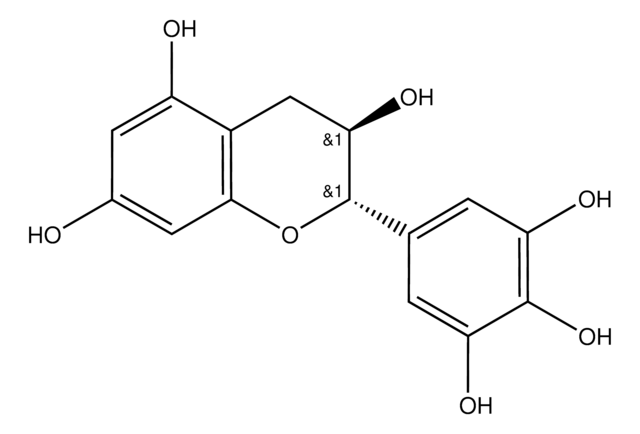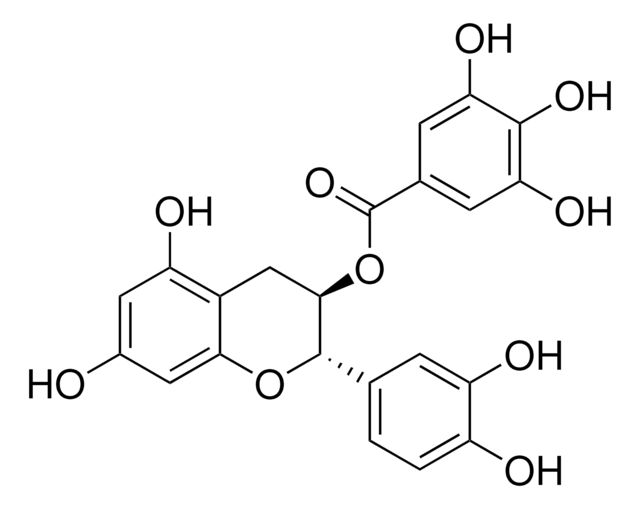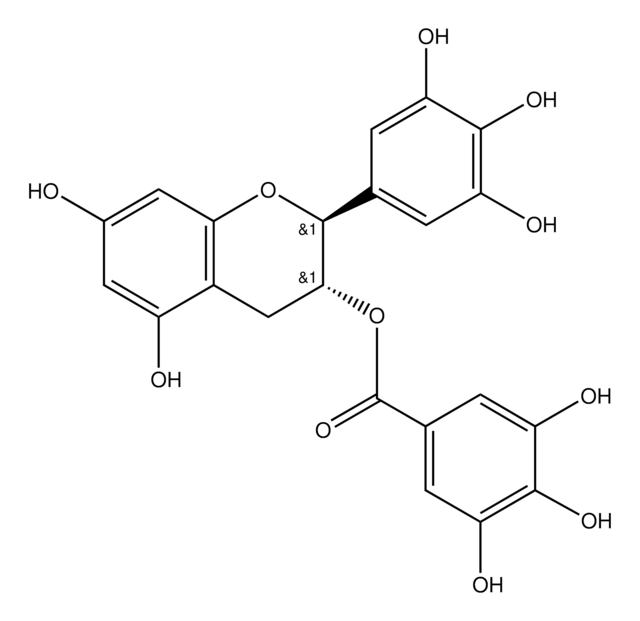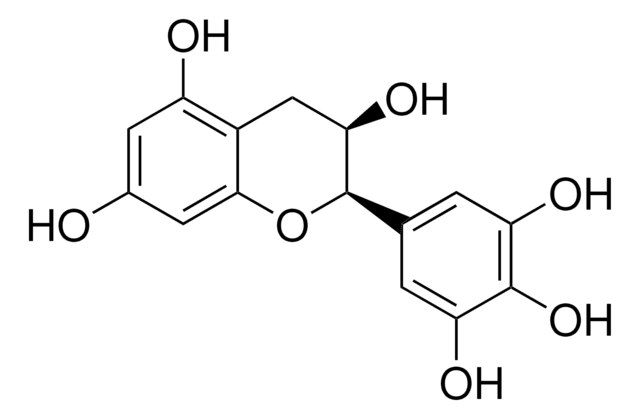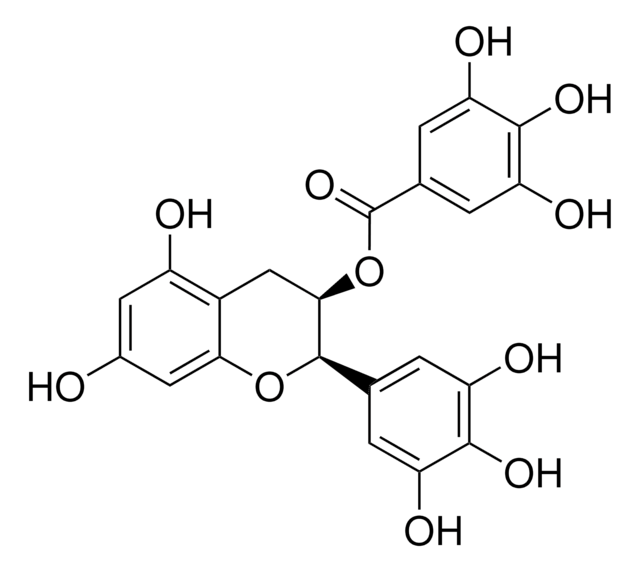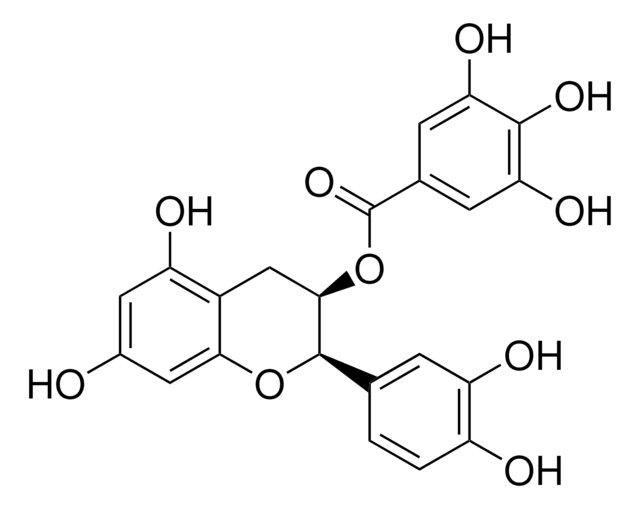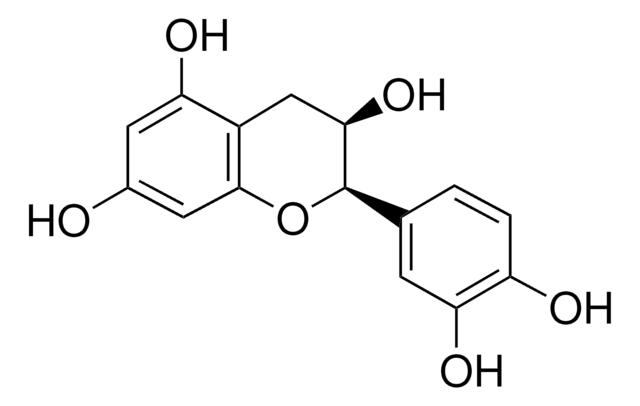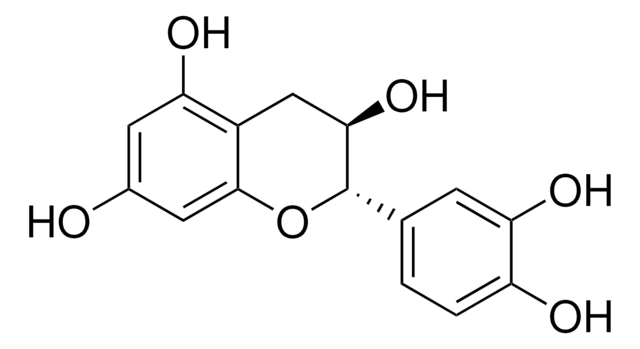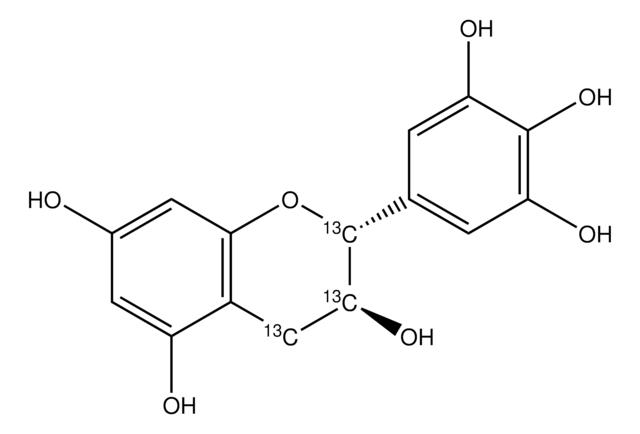G6782
(−)-Gallocatechin gallate
from green tea, ≥98% (HPLC)
Synonym(s):
(2S,3R)-2-(3,4,5-Trihydroxyphenyl)-3,4-dihydro-1(2H)-benzopyran-3,5,7-triol 3-(3,4,5-trihydroxybenzoate)
About This Item
Recommended Products
biological source
green tea
Quality Level
Assay
≥98% (HPLC)
form
powder
application(s)
metabolomics
vitamins, nutraceuticals, and natural products
storage temp.
2-8°C
SMILES string
Oc1cc(O)c2C[C@@H](OC(=O)c3cc(O)c(O)c(O)c3)[C@@H](Oc2c1)c4cc(O)c(O)c(O)c4
InChI
1S/C22H18O11/c23-10-5-12(24)11-7-18(33-22(31)9-3-15(27)20(30)16(28)4-9)21(32-17(11)6-10)8-1-13(25)19(29)14(26)2-8/h1-6,18,21,23-30H,7H2/t18-,21+/m1/s1
InChI key
WMBWREPUVVBILR-NQIIRXRSSA-N
Looking for similar products? Visit Product Comparison Guide
General description
Application
- to perform the tannase activity assay of the recombinant Lactobacillus plantarum tannase enzyme
- to study its inhibitory effects on HIV-1 integrase activity
- to study its regulatory mechanism on cholesterol metabolism in rat liver
- to analyze its effect as a polyphenol on human spermatozoa and their application in assisted reproductive technology
- to study the interference in stress protective activity of cellular prion protein (PrPC) and the formation of scrapie prion protein (PrPSc)
Biochem/physiol Actions
Signal Word
Warning
Hazard Statements
Precautionary Statements
Hazard Classifications
Eye Irrit. 2 - Skin Irrit. 2 - STOT SE 3
Target Organs
Respiratory system
Storage Class Code
11 - Combustible Solids
WGK
WGK 3
Flash Point(F)
Not applicable
Flash Point(C)
Not applicable
Personal Protective Equipment
Choose from one of the most recent versions:
Already Own This Product?
Find documentation for the products that you have recently purchased in the Document Library.
Customers Also Viewed
Articles
Antioxidants protect biological systems from oxidative damage produced by oxygen-containing free radicals and from redoxactive transition metal ions such as iron, copper, and cadmium.
Our team of scientists has experience in all areas of research including Life Science, Material Science, Chemical Synthesis, Chromatography, Analytical and many others.
Contact Technical Service